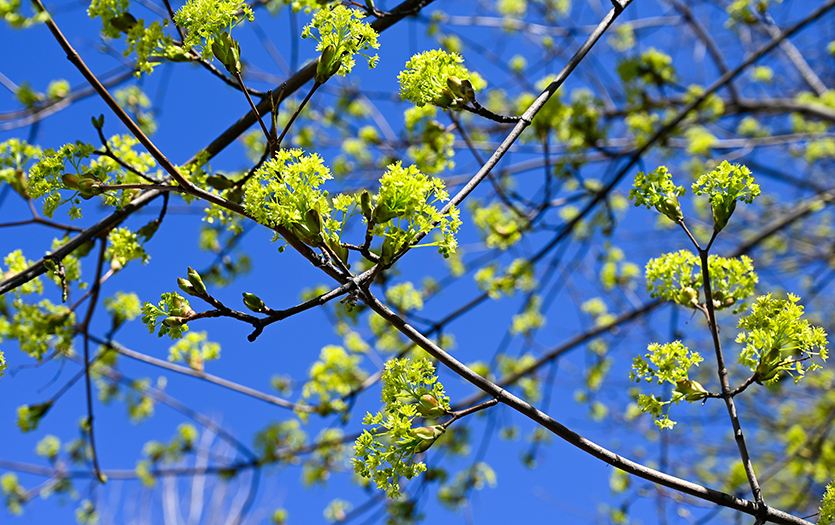
If you think your allergies are hitting early this spring, you’re right! Heather Willison, NP, PPG – Allergy, Asthma & Immunology, shared that tree pollen is striking ahead of schedule in northern Indiana and northwest Ohio.
“In our area right now, looking at the pollen forecast for our general area, it seems juniper and maple trees are currently blooming,” Heather said. But she anticipates this is just the beginning of what we’ll see budding in the days and weeks ahead.
So, how early are allergy sufferers experiencing symptoms this year? “Typically, we wouldn't see tree pollen until closer to April,” she shared. “Historically, I’ve instructed patients to start back on their allergy medications if they stopped for winter around the first few weeks of April, but I'm already having patients come in. This isn’t ideal, as I would like to have them back on their seasonal allergy medicine for about two weeks before we anticipate symptoms.”
Read: How to stay in front of seasonal allergies.
Symptoms
Spring allergies often bring a range of uncomfortable symptoms, including:
- nasal congestion and drainage
- post-nasal drainage (drainage down the back of the throat), which can irritate the throat
- pressure in the ears
- sinus pressure
- watery eyes
- itchy eyes
- red eyes
- sneezing
Read: Expert tips for managing spring allergies
What’s causing the shift
Heather says warmer temperatures recently are likely to blame for the pollen counts, which are higher than what we’d normally expect this time of year. “You can't predict what's going to happen every year,” she said. “And I certainly wouldn't have predicted such a warm winter.”
And unfortunately, this means a longer allergy season. “Tree pollen usually extends into May and then grass pollen kicks in around May, so this will lengthen the amount of time these individuals suffer from that nasal congestion, drainage, itchy, watery eyes, etc.,” she said. “Some of our asthmatic patients will also have some issues with asthma control, since their allergies will be flared up for an extended period.”
Spring also brings rain and damp weather, as well as cooler nights and warmer days, which creates humidity and, as Heather pointed out, mold spores, which is another concern for allergy sufferers.
Getting relief
In a normal year, Heather would recommend that allergy patients get on a daily over-the-counter antihistamine around this time. “Zyrtec®, Xyzal® and Allegra® are all great 24-hour tablet options,” she said.
“I also usually recommend that people get back on their intranasal steroid spray, like Flonase® or a Rhinocort® or a Nasacort®,” She explained. “Nasinex™ is also over the counter now, and a good choice. The nasal sprays take about 10 to 14 days to become fully effective, so you really want to get those on board early to make sure that they're working when you need them to work for you.”
This year, that might mean playing a bit of catch-up!
Parkview Health has two Allergy, Asthma & Immunology practices in Fort Wayne. If you're interested in establishing care with one of our providers, call 260-425-6070, Monday - Friday from 8 a.m. - 5 p.m.



